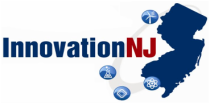Rutgers Joins NTIA Consortium to Lead the Next Generation of Wireless Network Innovation

“Rutgers School of Engineering’s WINLAB is excited to be a strategic partner on the NTIA’s ACCoRD effort,” says Ivan Seskar, chief technology officer for WINLAB. “As one of the few O-RAN Test and Integration Centers (OTIC) in North America, WINLAB will leverage its specialized capabilities in prototyping and preliminary testing of wireless technologies, in supporting the broader team’s ability to innovate and deploy the next generation of wireless products.” Rutgers, along with Columbia University and NYU, oversees COSMOS, a proving ground for new generations of wireless technologies and applications. The open-access COSMOS platform was initially established in 2018 under the National Science Foundation (NSF) Platforms for Advanced Wireless Research (PAWR) initiative and allows researchers to test advanced wireless techniques for improving network performance and creating city-focused applications. “The NSF PAWR COSMOS testbed that has been deployed in West Harlem in collaboration with Rutgers and NYU will provide a unique test environment for ACCoRD. Specifically, the focus on ultra-high bandwidth and low latency wireless communication tightly coupled with edge computing and optical x-haul in a dense urban area will enable us to push the envelope in wireless networking,” says Gil Zussman, professor of electrical engineering and member of the Data Science Institute at Columbia University. “Relationships between universities, government, and industry are an important means by which the U.S. can foster innovation, drive economic growth, and solve emerging societal problems,” says Narayan Mandayam, WINLAB director and a distinguished professor in the Rutgers School of Engineering’s Department of Electrical and Computer Engineering. “We are pleased to contribute to this important consortium, ensuring future wireless products meet the highest standards of efficiency and reliability.”
